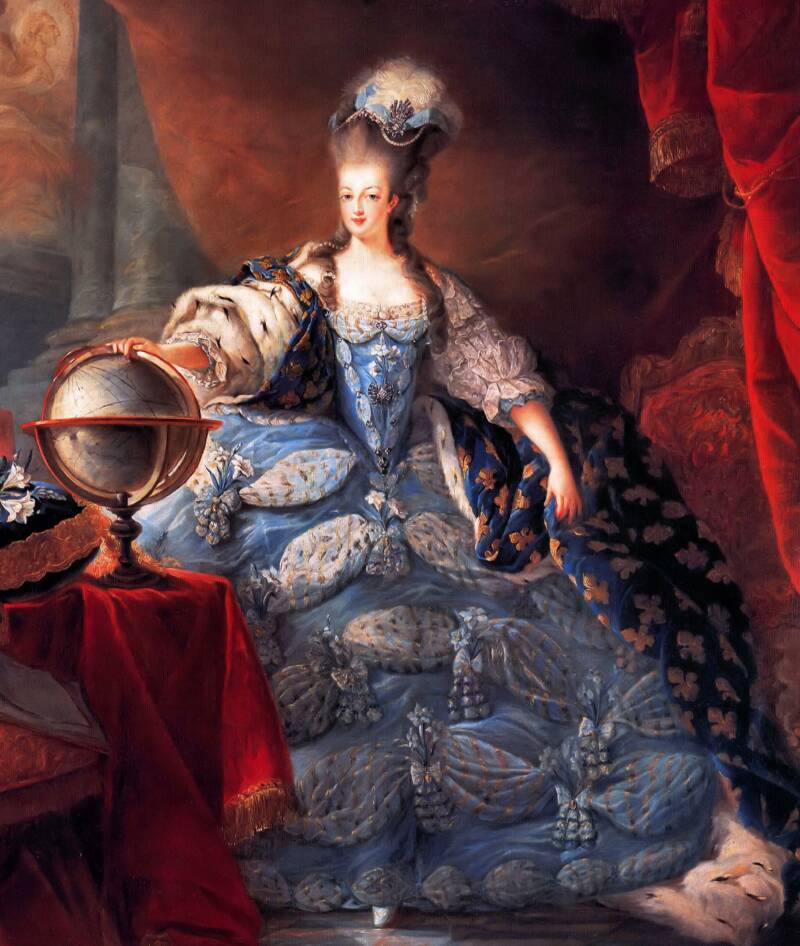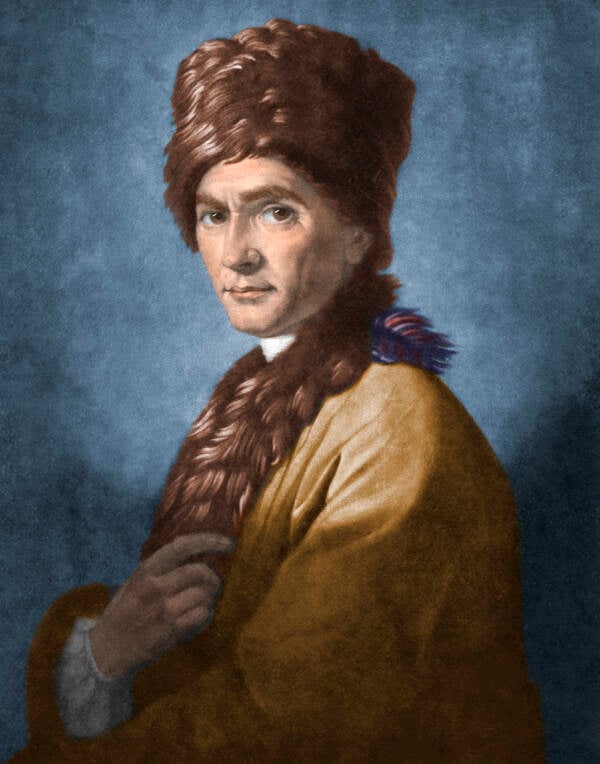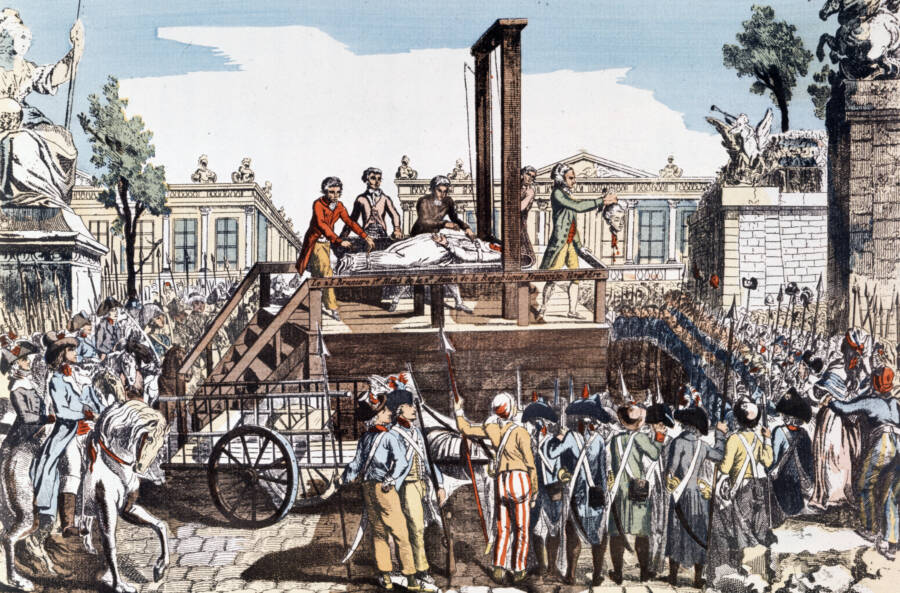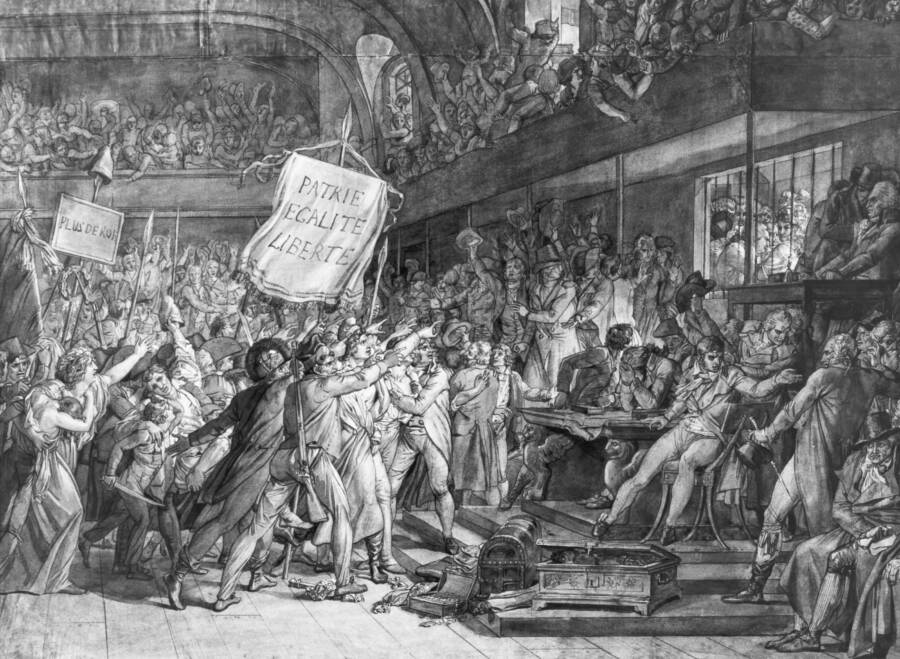The quote “Let them eat cake” had been attributed to noblewomen before Marie Antoinette, but a propaganda campaign against her by French revolutionaries forever associated it with France's last queen.

Universal History Archive/Getty ImagesA portrait of Marie Antoinette by Jean-Baptiste Gautier Dagoty.
It’s one of the most infamous stories in history: When told that French peasants were so poor they couldn’t afford bread, Queen Marie Antoinette replied, “Let them eat cake.” This legend has been passed down for centuries, contributing to the narrative that the 18th-century French queen could not care less about her people.
Over time, the phrase has become synonymous with the wealthy’s indifference to the struggles of the poor. But here’s the thing: Marie Antoinette never actually said “Let them eat cake.” At least, there’s no evidence to prove that she did.
This is in part a translation issue. Supposedly, she said, “Qu’ils mangent de la brioche,” or, “Let them eat brioche.” Granted, brioche is a sweeter, richer bread made with eggs and butter, but it’s not quite the sort of thing you would decorate for your wedding.
But there’s also no evidence that the queen ever said “Qu’ils mangent de la brioche,” either. So, how did this phrase come to be attributed to Marie Antoinette?
Stories From All Over The World Used Some Version Of The Quote Years Before Marie Antoinette
As noted in The Encyclopedia Britannica, the first person to put the phrase “Qu’ils mangent de la brioche” into writing was likely the French philosopher Jean-Jacques Rousseau around 1767.
In Book VI of Confessions, Rousseau attributes the quote to “a great princess,” though he names no one in particular. While it’s true that Marie Antoinette was indeed a princess at the time, she was also a young child, so it’s unlikely that Rousseau was referring to her.

Science Source/Photo Researchers History/Getty ImagesSwiss philosopher Jean-Jacques Rousseau, whose writings influenced the revolutionaries of 18th-century France.
Besides, while Rousseau’s account may have been one of the first written instances of the phrase, similar phrases had been attributed to other women in traditional oral storytelling centuries before Rousseau’s time.
For example, one folk tale from 16th-century Germany involves a noblewoman who hears of the plight of the hungry poor and wonders why they don’t just eat Krosem, a sweet bread not unlike brioche.
Still, French revolutionaries were heavily inspired by Rousseau’s writing. So while Marie Antoinette may not have been directly named in his work, she made an excellent scapegoat for revolutionaries who detested both her and King Louis XVI.
Was Marie Antoinette Falsely Accused Of Saying ‘Let Them Eat Cake?’
Even before the French queen became associated with the phrase “Let them eat cake,” Marie Antoinette was not viewed favorably by the French people — and her life of excess stood in sharp contrast to the people over whom she ruled.
A frivolous spender, the queen was known to gamble and to spend a fortune on clothing, expensive wigs, and jewelry. She planned lavish balls that lasted into the morning, and also made a number of extravagant renovations at Versailles, including to her own private chambers, which she expanded to include the rooms on the floor above.
Her lifestyle was so excessive that the public and her enemies in court began calling her “Madame Déficit.”

API/Gamma-Rapho via Getty ImagesAn illustration depicting the execution of Marie Antoinette.
Some historians have suggested that revolutionaries caught wind of the quote “Qu’ils mangent de la brioche” from Rousseau’s writings, then falsely credited it to their despised queen as a form of propaganda. But even this does not hold up to modern scrutiny.
The earliest known source that connected the phrase to Marie Antoinette was the French writer Jean-Baptiste Alphonse Karr. In an 1843 issue of the journal Les Guêpes, Karr wrote that he found the quote originally in a “book dated 1760,” which he said meant that the rumor about Marie Antoinette must have been false, as she’d have been about five years old at the time the book was published.
So, it’s very possible that the French citizens were indeed circulating the propaganda against the queen, though clearly not everyone was buying it.
How ‘Let Them Eat Cake’ Came To Be Attached To Marie Antoinette
Why, then, has the misquote carried on for nearly 300 years?
“It did not come to be misattributed to Marie Antoinette during the 18th century, but during the Third French Republic starting in 1870, when a careful program of reconstructing the historical past took place,” Denise Maior-Barron, an adjunct professor at Claremont Graduate University in California, told Live Science.
While the French Revolution of 1789 is considered to be the major revolution in France’s history, it is not the only time the French people rose up against their government.
Towards the end of the 19th century, France saw another major shift in power when members of the Third French Republic dethroned Napoleon III following his failed war against Prussia. Those same republicans then sought to effectively rewrite bits of France’s history to paint key figures in a different light — particularly, the disfavored queen Marie Antoinette.
“The masterminds of the French Revolution destroyed the French monarchy by continually attacking, and eventually destroying, its most important symbols: the king and the queen of France,” Maior-Barron said. “For this reason the ‘Let them eat cake’ type of clichés persist.”
Misogyny May Have Contributed To Marie Antoinette’s Legacy
Still, the treatment of Marie Antoinette was far harsher than that of her husband, the man who had actually been France’s ruler. Of course, there is a reason for that, too.
“The French Revolution tried to exclude women from political power,” said Robert Gildea, a professor of modern history at University of Oxford. Gildea explained that under the rule of Louis XVI, women in France had some capability when it came to ruling, at least in an unofficial capacity. They, as wives and mistresses, could hold some sway or influence over the men they were seeing.

Bettmann/Getty ImagesA drawing by Baron F. Gerard depicting King Louis XVI as he was held captive by the General Assembly during the French Revolution.
Revolutionaries, however, wanted to remove women from the national conversation as much as possible. Marie Antoinette became the scapegoat for these revolutionaries, who claimed she had too much control over her husband while he was in power.
They effectively assassinated her character, then used her as an example of what could happen should women be given more power — especially over men.
“She was accused of having male and female lovers and even of an incestuous relationship with her son,” Gildea said. And Marie Antoinette was not the only woman to face the guillotine because of republicans’ fears of empowered women.
“Olympe de Gouges, who wrote the ‘Declaration of the Rights of Women and of the Female Citizen,’ was also guillotined,” Gildea said.
In her lifetime, Marie Antoinette had also posed another threat to the version of France revolutionaries were trying to build: her connections to the Habsburg Austrian royal family. In fact, before her marriage to Louis XVI, Marie Antoinette was herself a member of the Habsburg family, so as whispers of revolution turned into shouts from the streets, Marie Antoinette wrote to her brothers in Austria.
She asked them to send their troops to France in order to protect the monarchy. And when those troops inevitably did arrive, the French people viewed Marie Antoinette as a traitor.
Obviously, the Habsburgs’ interference failed to stop the revolution. And as the saying goes, “History is written by the victors.”
For more insight into the life of France’s final queen, read about how X-ray technology helped to uncover the censored messages in letters Marie Antoinette wrote to her potential lover. Then, learn more about Marie Antoinette’s final days before her execution at the guillotine.





